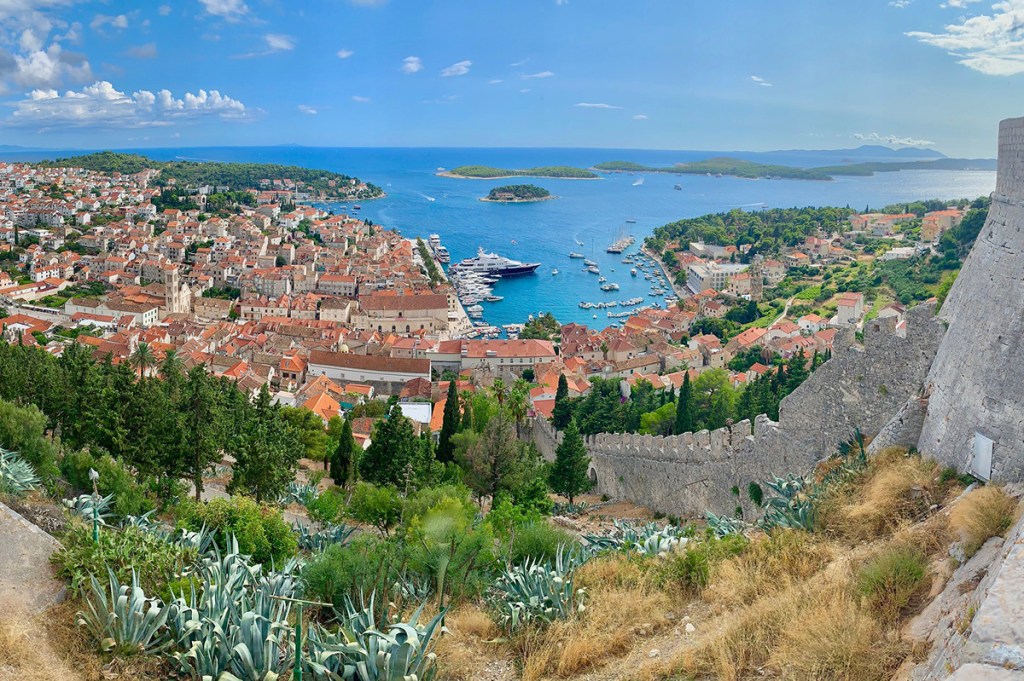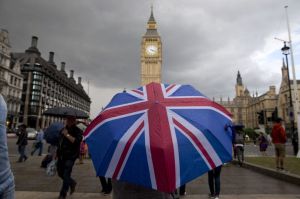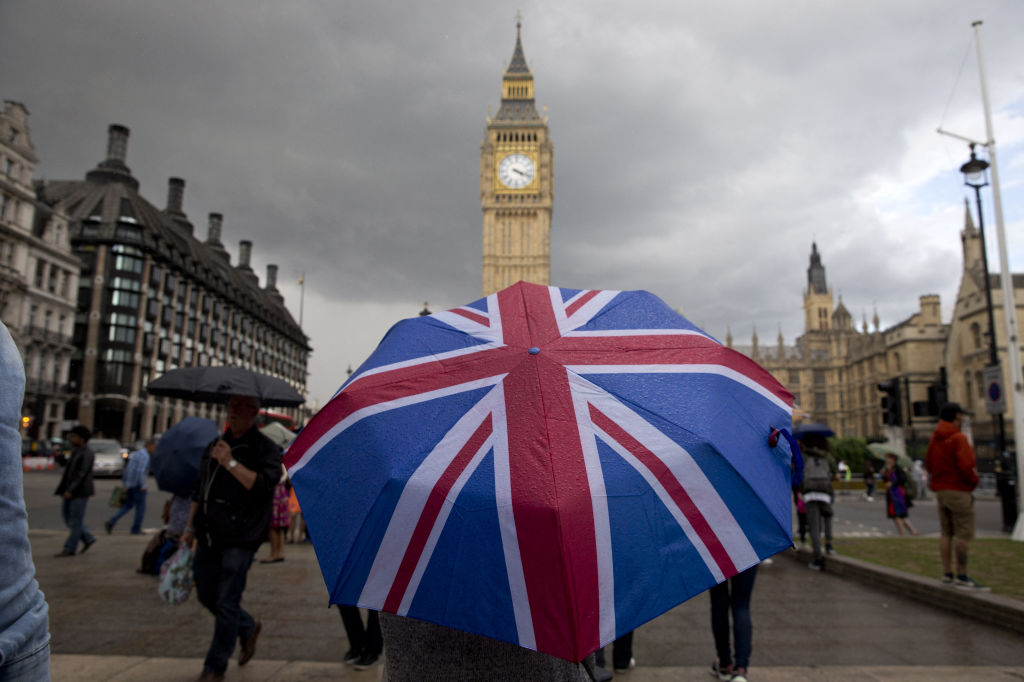We had lost the habit of checking the national statistics of infections and deaths from COVID-19. They didn’t mean much in Budapest as the summer wound down and the city visibly revived, with heavier traffic and more restaurants open. But then there was a spike in cases in next-door Croatia, and the Hungarian government pondered closing the borders. That threatened our hope — desperation, really — for a beach vacation. We were the most locked-down couple in town. My wife had broken her heel and been confined to our apartment for four months, and I’d been stricken with sciatica and moved like a glacier. To our relief, the Croatian statistics were not too alarming and the Hungarians postponed restrictions. We still had to work out how to get to Hvar, though. Most flights from Budapest to anywhere near had been canceled. Then we discovered that a company, Daytrip, would drive us from our apartment to the ferry at Split for a reasonable price. At 6 a.m. we loaded our luggage into the car, handed over our troubles to our driver, a knowledgeable Croatian tour guide, and set off.
Our hotel was ideally situated for the weary traveler. It was four minutes’ distance by Jeep from the ferry stop on Hvar, but about a hundred years’ distance from the ferry in calm, style and pampering. That didn’t surprise me. But it might have done so if I had imagined the difficulties in the season of coronavirus for any hotel, let alone a new one like this (we arrived on its second day). No one knew when the pandemic would end. The obstacles we had skated over had kept many guests away. The UK’s announcement that it was listing Croatia as a ‘red-list’ zone meant more cancellations. When that happened, we and other guests were gloomy in sympathy with our hosts, but their good spirits never wavered. Neither did their standards of service. The menu was a large one, local with a slight Asian flavor. The dishes I tasted were delicious; the wines varied and well chosen; the water in sea and swimming pool amazingly buoyant; the wellness massages ‘heavenly’ according to my wife; and, though I avoid massages, the sheer physical comfort of the hotel made my sciatica vanish.
Still more remarkable was the friendliness of the staff. It helped that we guests were few in number and we soon got to know each other. But the Maslina Resort is also a rare place where everyone seems to be striving for excellence. That starts with the French family who owns it, and whom I watched watching like parents over the planting of an olive tree. The general manager, Zoran Pejovic, ran five-star hotels from Shanghai to Los Angeles until he returned to found a wine bar in Split that has won the title ‘Best Wine Bar in the World’ from Hideaways magazine. He recruited other locals, like his sommelier, Mladen Livaja, whose previous postings include El Celler de Can Roca in Girona, which Restaurant magazine has twice named ‘Best Restaurant in the World’. A rare nonlocal is Patricia Yeo, an Anglo-Chinese chef from Cambridge, England, who owned three restaurants in New York. She asked if I knew Bolo. I lived next door — 21 East 22nd with Bolo at 23rd — and I ate there all the time. It was terrific. ‘I ran that,’ she said, modestly. Having learned mackerel was my favorite fish, she asked the local fishermen to catch two and prepared them beautifully for dinner. Not surprisingly, we ate and drank all but one meal at Maslina. During that meal (in the island’s first capital, Stari Grad), my cellphone told me a lecture I was to give in Budapest had been canceled. We cheered, rang the hotel and booked four more days.
We departed a still-sunny Hvar, but as we drove out of Split, the heavens opened. It rained all the way to Zagreb, where we consoled ourselves with a late lunch with old friend (and fellow ghostwriter of Margaret Thatcher’s memoirs) Robin Harris. He has learned Serbo-Croat, written a history of Dubrovnik, almost finished a history of Croatia and now advises the Center for the Renewal of Culture. He seemed content. But were there any drawbacks to living there? ‘Well,’ Robin said after a pause. ‘There are earthquakes. One destroyed my apartment recently. Fortunately, I was in the countryside at the time. So, not really.’
We crossed the frontier four hours before it was closed to non-Hungarians, owing to second-wave anxiety. Budapest is more lively than before we left, and not because of riots. As for our policemen…compared with the cop in Melbourne who just threatened to fine a friend for digging his own garden without a mask, they’re wonderful.
This article is in The Spectator’s October 2020 US edition.

























